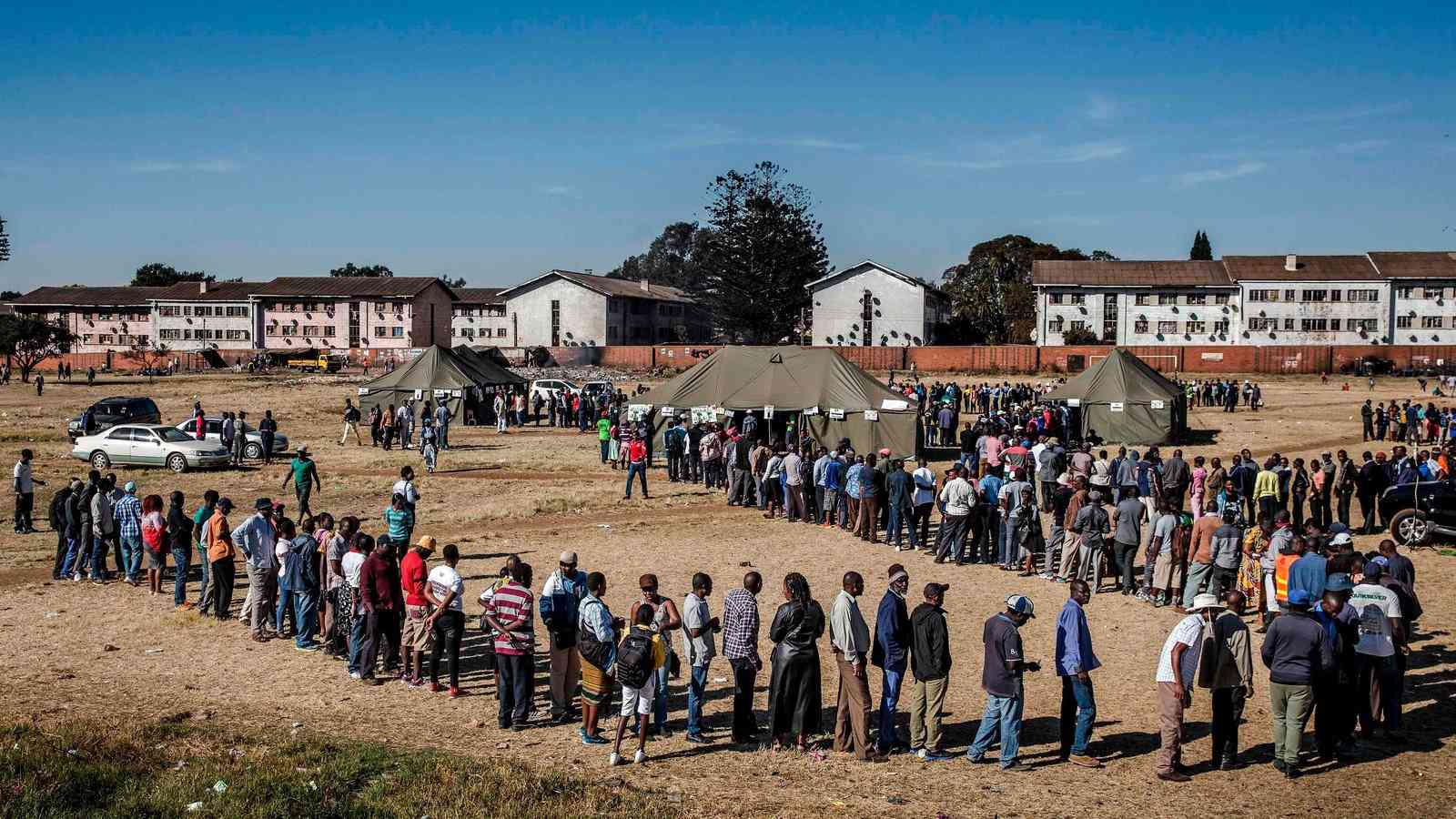
AFTER President Emmerson Mnangagwa inadvertently announced August as the month for this year’s harmonised elections, various researchers, journalists as well as politicians wondered whether this election cycle will break from the past in terms of the willingness of the government to adhere to African Union (AU) and Southern African Development Community (Sadc) electoral guidelines.
This new election season comes against the backdrop of disputed elections in 2018, a scenario that raises serious legitimacy issues regarding Mnangagwa’s current government and his entire term.
While this potentially derailed the country from achieving political and economic stability in the period 2018-2023, disputed elections dent the reputation of the AU and Sadc as arbiters of standard electoral practices which safeguard democracy in Africa.
However, it is important for people to engage in the discourse of electoral practices to ascertain whether Zimbabwe’s electoral performance in the last five years passes the credibility test and the standards set by the AU and Sadc.
Besides setting electoral standards, Sadc principles provide that member States hold elections to “establish impartial, all-inclusive, competent and accountable national electoral bodies staffed by qualified personnel.”
On February 3, 2023, the Zimbabwe Diaspora Vote wrote to Parliament urging the Electoral Act to be “amended such that the diaspora vote is managed in a manner that ensures the transparency and integrity of the entire electoral process as contained in item 7.8 of the Sadc principles and guidelines.”
Sadc also provides, in section 7.4, that member States “safeguard the human and civil liberties of all citizens including freedom of movement, assembly, association, expression and campaigning as well as access to the media on the part of all stakeholders”.
With reference to the 2018 elections, the AU concluded: “The elections of 2018 are an important moment in the democratic transition of Zimbabwe and provides an opportunity for the country to change course, in particular, broadening the political space and allowing citizens to exercise their constitutional rights in a democratic way. By and large, the process was peaceful and well-administered.”
- News in depth: Fears of violent 2023 polls grow as ED fails to deliver on promises
- Come back home, but we have no jobs: Mangwana
- SA must protect foreign nationals within its borders
- Malema apologises for Elvis Nyathi killing
Keep Reading
However, Tinashe Sithole who writes for African Liberty believes: “The opposition political parties perceived the election outcome as neither free nor fair.” Therefore, as a result there was post-election violence. Sithole is sceptical about this year’s elections given the lack of fundamental freedoms including freedom of speech, freedom of association and assembly, citing the current vilification of opposition personalities, musicians and journalists as well as the banning of opposition party events.
The AU Election Observer Mission (AUEOM) recommended the need to guarantee equal access to the State broadcaster to all contestants during elections in fulfilment of the Broadcasting Services act to ensure balanced and pluralistic media. However, in 2018, these recommendations were not taken notice of.
The AUEOM noted: “The media environment still remains largely polarised. While the electoral law mandates Zec (Zimbabwe Electoral Commission) to regulate the media during elections through the establishment of a Media Monitoring Committee, it has been unable to effectively operationalise this committee, leading to a media environment that has operated without any systematic regulation during the 2018 election period. As a result of the foregoing, both private and State-owned media houses have exhibited a noticeable degree of polarisation characterised by biased reporting and inequitable coverage of political parties and candidates contesting the elections.”
Without requisite electoral reforms, the media environment in Zimbabwe for the 2023 election season remains favourable to the ruling Zanu PF.
In its election observation report of 2018, the Zimbabwe Election Support Network (Zesn) concluded that the courts’ “disregard for other issues indicated an unfair atmosphere” and insisted on the courts’ lack of autonomy. Zesn would favour a situation whereby Article 4.1.13 of the Sadc Principles and Guidelines, which denounces the non-acceptance of results issued by legally competent authorities, is followed.
The 2018 Zimbabwe International Election Observation Mission report noted that while some significant improvements were demonstrated in the 2018 elections, Zimbabwe has not yet established a process that equitably treats all political parties and allows citizens to be confident that they can cast their vote and express their political opinion free from fear of retribution”.
In short, the 2018 elections in Zimbabwe did not pass the credibility test and possible voter apathy feeds on the country’s inability to adhere to national, regional and continental electoral principles.
Article 5.1.4 of the Sadc Principles and Guidelines instructs member States to provide justice in the resolution of electoral disputes through constitutional and electoral courts. This is evidenced by the fact that the MDC Alliance filed a petition in 2018 attempting to overturn Zec’s decision to declare Mnangagwa the winner citing alleged rigging. The case was dismissed because the complainant could not prove the case beyond doubt, with disregards with issues pointed to constituting an unfair environment.
Lyandra Nyamande is an international relations student at Africa University, Mutare








